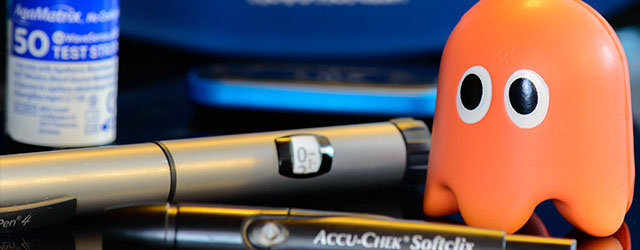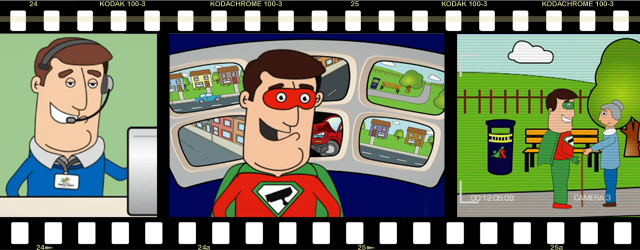Everywhere in Guyana were creatures great and small; it was quite common to have small frogs torpedoing out of the water taps, not to mention lizards crawling up the walls, bats appearing at the windows and cockroaches scuttling across the floor. Once we even had a large snake curl up in a washing basket in the middle of our basement floor.
At night, bathing under the light of the driveway, would sit a vast collective of bloated, repulsive toads – called ‘Crapo‘ in the Creole tongue – that would puff up to twice their size; looking twice as ugly as I approached them. I would often get stung by Marabunta wasps (that bloody hurt like hell), attacked by troops of red ants, and bitten by mosquitoes on a white meat diet.
To my unpleasant surprise, even the caterpillars stung me when I accidentally trod on them. At least the birds liked me and would sing my name; the bird-song of the Kiskadee sounded like they were saying ‘Christopher’, so that’s what we called them – Christophers.
I was six years old and would earn eggs, milk, and meat for us by mucking out at the farm next door; herding and milking the cows and goats, along with feeding the chickens and ducks. At the farm I was considered a moving target for a bullish bull and a source of great amusement for a particularly sadistic turkey that would chase me up the nearest tree.
We acquired an unusual collection of pets of our own during our lives in Guyana: from a nameless tortoise that managed to escape, a temperamental macaw with a spoon fetish named Miguel – that also briefly escaped – an adopted sibling in the form of a howler monkey named Floyd, and an injured fox – that also escaped and ate next door’s chickens – and even – though not quite pets in the literal sense, a baby alligator and two manatees. Let’s get the latter two cleared up first:
The adult manatee had strayed from the sea and found its way far up the Abari River where she gave birth to a calf. My father – a student in zoology and marine biology – and his team were alerted by some local fishermen who had built an enclosure for them, providing protection from the piranhas and alligators.
The mother had a large scar on her back from where she had been attacked by something hungry, or cut by an out-board engine propeller – how the manatee got this far up the river was an incredible feat in itself. I was fortunate enough to paddle with the manatees and have since developed a great affection for this enigmatic and docile endangered species. The manatees were given a safe home at the Guyana Zoo in the capital city of Georgetown where we would visit them from time to time.
The new-born alligator was my father’s office pet and lived in a large water tank next to his desk. I’ll never forget the day that he turned up with it at the Dutch club; carrying the creature in his arms, its jaw taped up and my father looking sheepishly at my mother as if about to say “Can we keep him, pleeeese?”
Equally memorable is the sharp and assertive ‘NO!’ that thundered from my mother, shooting him down with her trademark stare. “But it’ll only be for a few weeks.” My mother’s reply was not fit for a young lad, a sheepish husband, or the infant ears of an unwanted alligator – and definitely not suitable for reading today. Only two alligators ever entered our house: one was a stuffed one, the other was ran over by a neighbor and cooked in a curry.
I thought that the fox was a dog at first (Well, it is in a way but you know what I mean). I remember being at a house across the road with two locals who had just cut the head off a duck (as you do); the beak of its detached head was still yapping on the ground while the mallard was running around the yard like a headless, erm, chicken, until it ran out of blood. In the distance I could see some natives approaching the front veranda of our house, presenting what looked like a small dog.
“Cool, we’ve got a dog!” I thought, and sprinted over to greet our new pet. What I came face to face with was not a cute dog with a waggly tail, more like a snarling beast. And my… what big teeth it had. My mother still tells of the way in which I approached the back door and, as cool as a cucumber, said, “I thought I’d come in the back way because there’s and angry looking fox lying in the way of the front door, what’s for tea?.”
The fox had been caught in a trap and had an injured paw; it had also been tied in a barbed wire collar that was still sunk deeply into its neck. The natives who found the battered fox had heard stories that my father was some sort of Doctor Doolittle and they left the fox for him to nurse back to health. It lived in a cage in the basement for several weeks until it escaped – eating my chicks and ducklings as a parting gift, also taking most of next door’s chickens while en route to god knows where. That’s gratitude for you.
My father returned home from the jungle with a surprise pet one day, in the form of a blue and gold macaw that he and some conservationists had rescued from poachers. We named him Miguel; he would eventually return back to Wales with us. The reason for the tropical rainforest being in such dire straits is down to the amount of perches Miguel went through.
Every day there would be a dissatisfied squawk and Miguel would be found clinging on to the side of the cage, feathers sticking up in protest. He was a little ‘temperamental’; the only way to get near him was by wearing my Sootyglove-puppet that he had grown quite an attachment to – more so than humans. Miguel’s few pleasures in life were bananas, sugar cane, my flesh, and being stroked on the head with a teaspoon – but only by the hand of Sooty, of course.
Miguel managed to get himself stuck up a tree one day (seriously!). His wings had been clipped but, as we found out, he was still able to make a break for it; he glided over to the nearest tree across the road. There he remained – standing out like a giraffe on a glacier, and probably feeling a little silly – as my father – probably feeling equally silly because he was wearing a Sooty glove-puppet and holding a spoon.
He climbed the tree – assisted by Paul the farmer – and got Miguel down safely before he glided away into the waiting mouth of something big. A little more wing clipping would make certain that Miguel would remain within the confines of the house.
Our reason for me and my parents being in Guyana in the first place was because my father was studying a Masters Degree in Zoology and Marine Biology; in the 80’s work experience was real work experience. My father would often venture deep into the jungle – sometimes I would go with him – as part of a team of local conservationists.
On one particular outing the team had heard gunshots nearby. Some poachers had fired upon, and hit a female howler monkey; she was left for dead and her new-born baby exposed and alone. The new-born was adopted by my father – who named him Floyd – and would become a valuable member of the King family.
Floyd was amazingly childlike and would play, sunbathe, and throw tantrums that upstaged even me. He would sit on my mother’s shoulder while she was out and about at the Sunday food markets; during the evenings he would sit on my father’s shoulder when he was playing dominoes, his long prehensile tail cuddling his neck.
He liked Pringles, peach juice, sugar cane and Edam cheese – and the little git was always running off with my Star Wars figures. When he needed feeding, attention, or comforting he would latch on to my mother, and when he got told off by my mother he approached my father; when he fancied amusement he would piss and shit in my bed. Miguel the macaw didn’t like Floyd and would make him dance every time he climbed on top of the bird cage.
Howler monkeys are the only South American monkey not to be kept as pets, due to their surly disposition. We would eventually have had to part with Floyd as he grew into a one meter tall adult. Sadly, he didn’t get the chance to grow into adulthood at all.
I was at a lesson with my private tutor when my father appeared in the doorway; his shoulders were slouched and he didn’t speak. He stood there for several minutes, just gazing into space before walking away. I wouldn’t find out until I got home from tuition that Floyd had broken free of his leash and had chased my father down the driveway.
My father always slipped through the back door before Floyd would notice he had gone, but Floyd had wised up to that. While giving chase to the Land Rover Floyd he latched on to the wheel and was crushed to death it as it rolled over him. He would be the last family pet that we would adopt in Guyana.
My only pet was a tortoise. I can’t recollect its name but I do recall that it was old, scratched and only had one eye. I would carry it everywhere I went; when it wasn’t under my arm it would follow me on foot. One day it mysteriously disappeared (yes, my tortoise ran away) and I especially recall the day that I got reunited with it – I will never forget that.
It was the very last day of my life in Guyana. I was saying goodbye to friends when something caught my eye; something walking down the driveway very slowly – it was old, scratched, and only had one eye. I swear to this day that it was my old pet tortoise who had come to say farewell.
Whenever I tell this story I can’t help laughing to myself at how absurd it all sounds. It doesn’t surprise me when people think that I’m taking the piss and are inclined to ask “How much of that was true?” – I know that I would if someone was telling me something equally far-fetched.
This is actually my life that I’m writing about. The life of a valleys boy who was lifted from the snow covered hills of South Wales to the lush, green tropics of Guyana. For a six year old boy, it was a magical life far from ordinary. For a thirty year old adult, it is a privileged past that grows ever more distant, surreal, and unbelievable.
Here is a short clip from Guyana 1987, featuring me, my mother, Floyd the Howler Monkey, and Miguel the Macaw:



